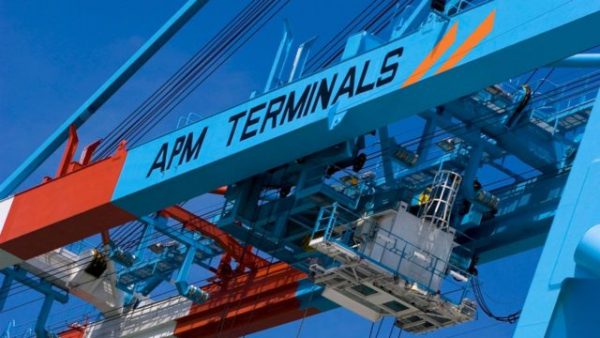
APM Terminals Apapa has restated its commitment to the promotion of environmentally sustainable operation at the port.
The Terminal Manager, APM Terminals Apapa, Steen Knudsen, said this while addressing journalists in Lagos, noting that the global ambition of the terminal operator is to move to achieve a net zero CO2 emission in all its operations worldwide.

Knudsen noted that the company has continued to promote awareness of the environmental impact of port operation and taken practical steps to reduce such impacts by minimising pollution and promoting the reduction, reuse and recycling of plastic products.
He said the terminal uses cargo handling equipment that is fuel efficient and environmentally sustainable.

“When we buy equipment, we always look at the fuel efficiency of the equipment, and whether alternative options are available. In the future, when we will acquire equipment, we will consider equipment that is either electrified or able to use fuel types with lesser CO2 emissions.
“It is key that there is a strong collaboration between private and public players, to ensure sufficient clear electricity production and distribution is in focus, to make a meaningful impact on industrial emissions.
“We must appreciate the fact that global supply chains have an impact on the environment. A lot of fuel is being consumed to deliver goods to countries around the world, and we must play an active role in reducing this consumption,” he added.
Meanwhile, the Terminal Manager commended the Federal Government for the construction of a new standard gauge rail line at the port.
He said the rail line aligns with the terminal’s agenda of making its entire supply chain eco-friendlier, adding that it is important in providing cost-efficient means of moving cargo to the hinterland.
Knudsen said while a narrow-gauge railway line connecting Kano is in operation at the terminal, the construction of the new standard gauge line will further enhance the delivery of cargo through the rail.
 MMS PLUS NG – Maritime, Aviation, Business, Oil and Gas News Online Newspaper with coverage in Maritime, Oil and Gas, Aviation, Power and Energy as well as Financial News
MMS PLUS NG – Maritime, Aviation, Business, Oil and Gas News Online Newspaper with coverage in Maritime, Oil and Gas, Aviation, Power and Energy as well as Financial News









